Precise EMG testing that identifies exactly what’s causing your numbness, tingling, or muscle weakness.
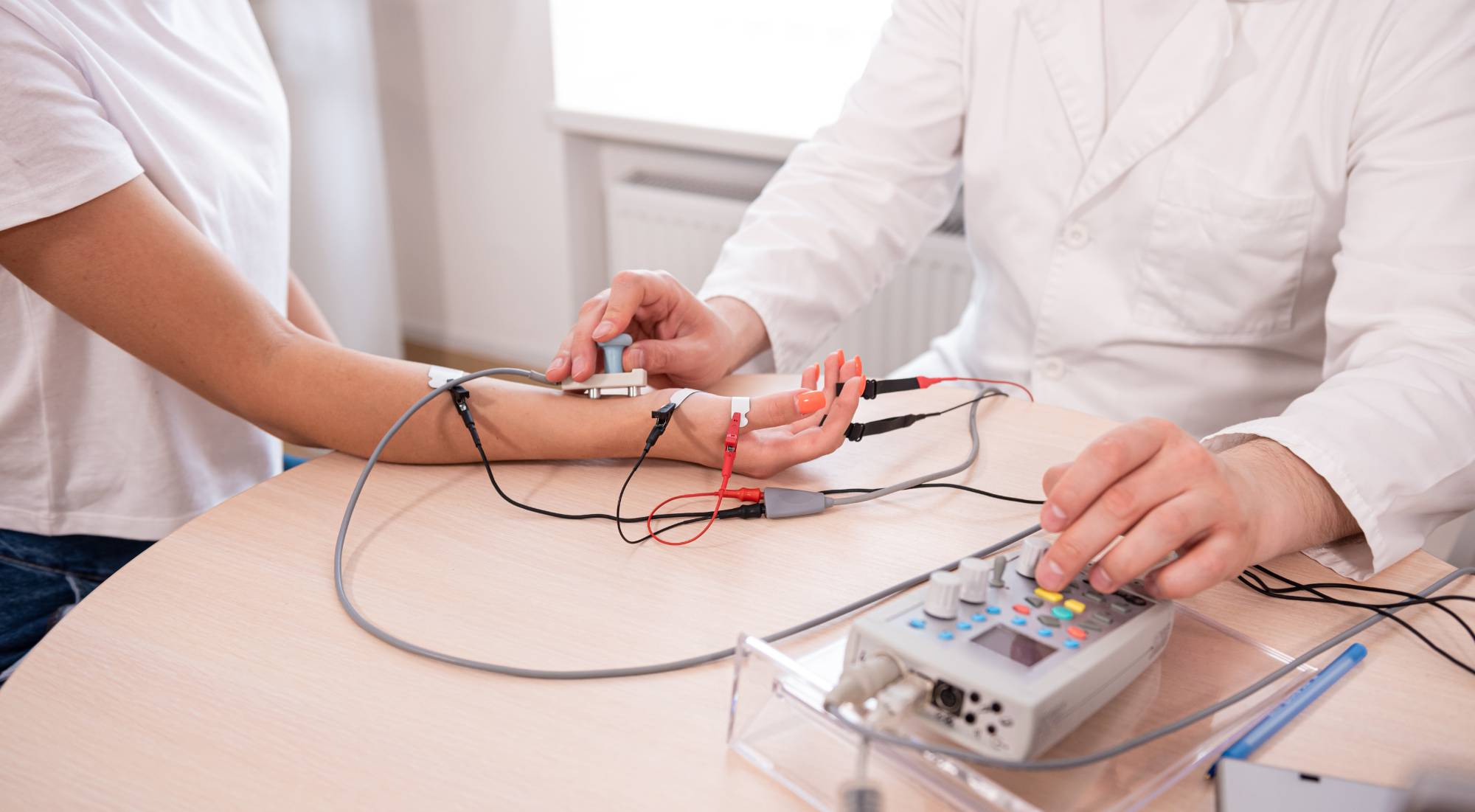
Reviews
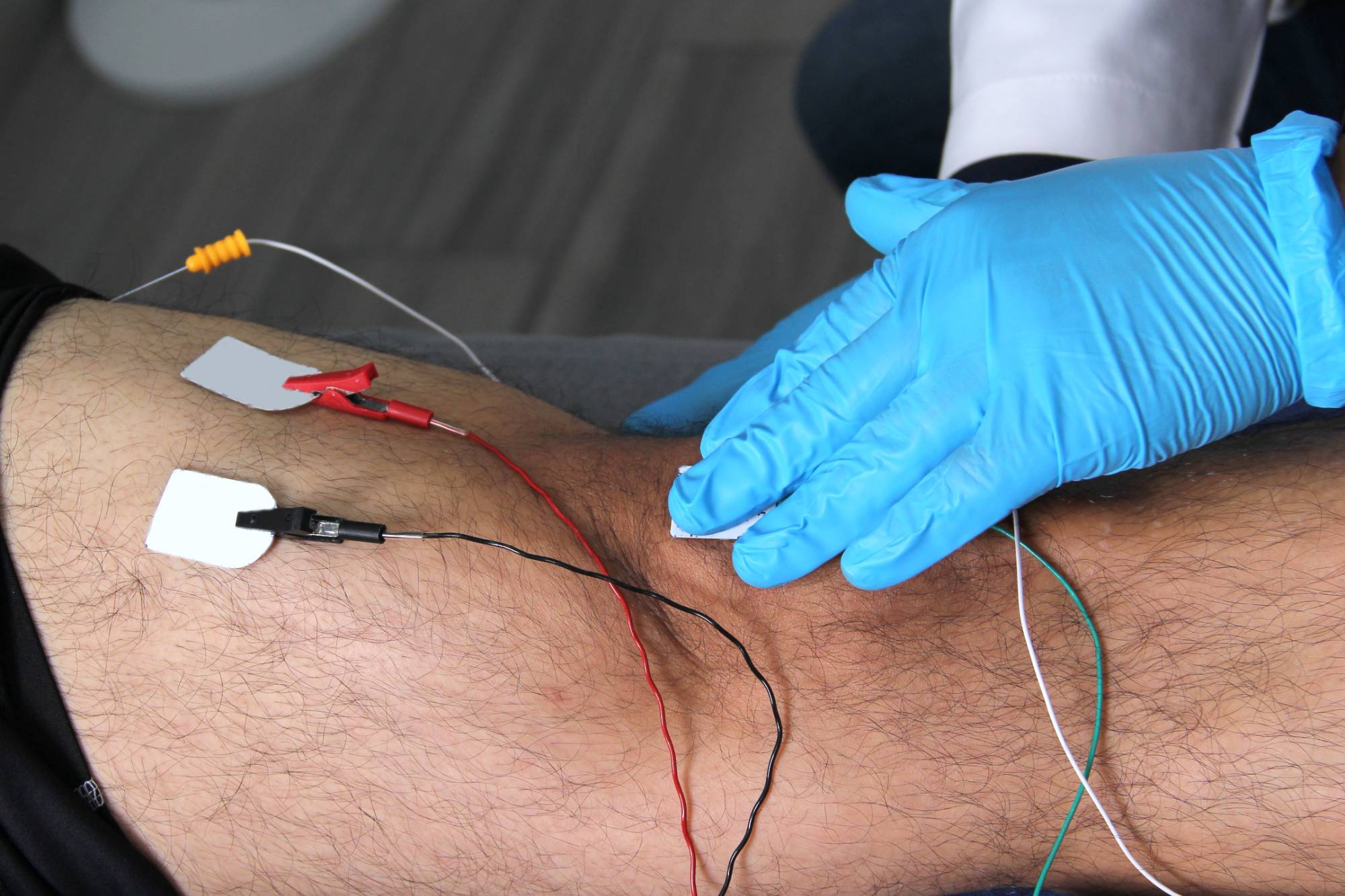
You’re tired of guessing what’s wrong. The numbness in your hands, the shooting pain down your leg, the muscle weakness that’s getting worse – you need answers, not more uncertainty.
EMG testing gives you those answers. Within an hour, you’ll know if your symptoms are coming from nerve damage, muscle disorders, or something else entirely. No more wondering if it’s “all in your head” or if you’re overreacting.
When you have a clear diagnosis, everything changes. Your doctor can create a targeted treatment plan. You can make informed decisions about your care. Most importantly, you can stop the progression of nerve damage before it becomes permanent.
NY Spine Medicine has been providing diagnostic testing and pain management services throughout South Florida for years. Our team includes board-certified specialists who understand exactly what you’re going through.
We’ve performed thousands of EMG tests and nerve conduction studies. We know how to get accurate results quickly, and more importantly, we know how to explain what those results mean for your specific situation.
Located conveniently for West Perrine residents, we accept most major insurance plans and work directly with your referring physician to coordinate your care.
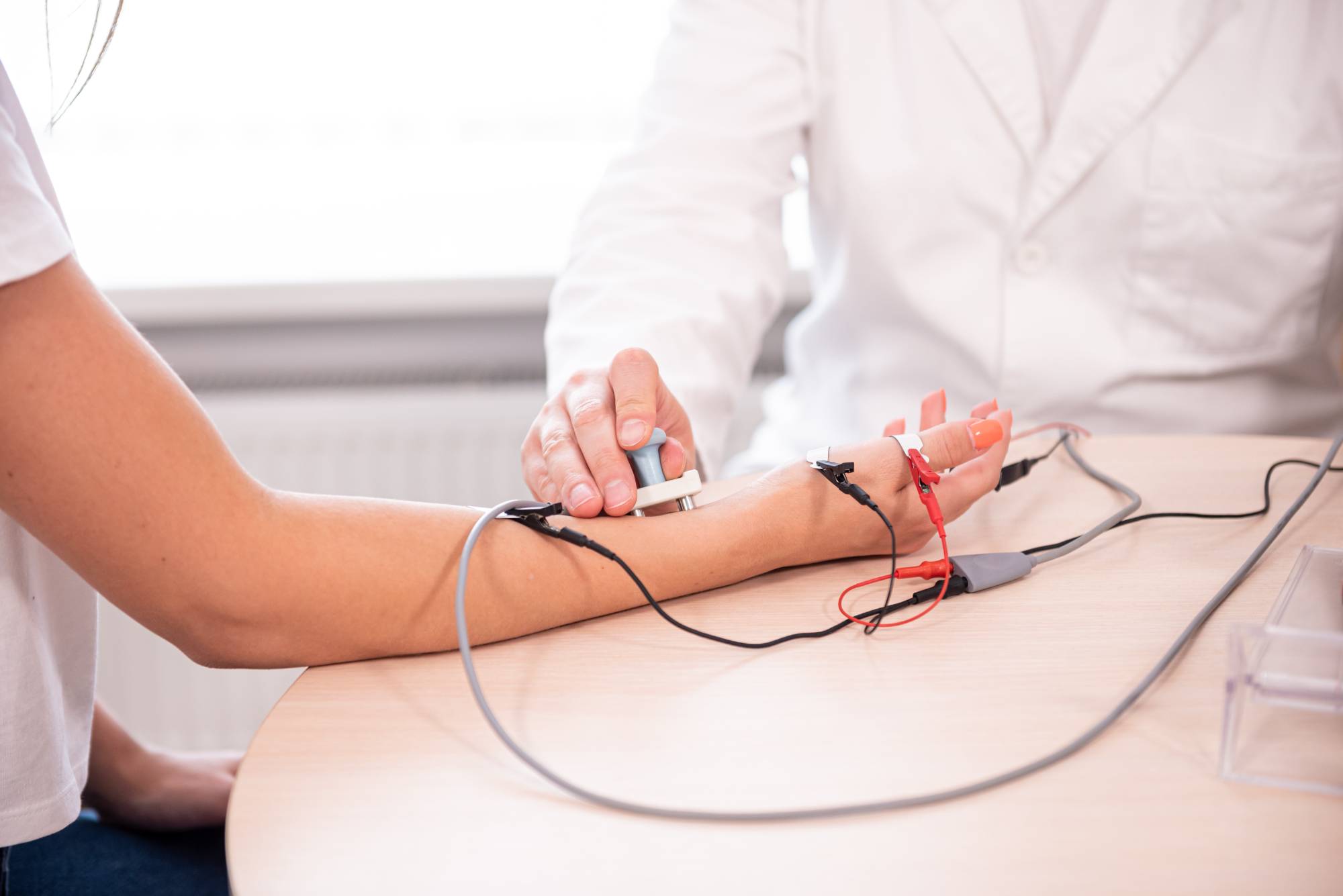
First, you’ll meet with our specialist to discuss your symptoms and medical history. We need to understand exactly what you’re experiencing and when it started.
During the EMG test, small electrodes are placed on your skin to measure electrical activity in your muscles. For the nerve conduction study portion, mild electrical pulses test how well your nerves transmit signals. The entire process typically takes 30-60 minutes.
You’ll get your results immediately. We’ll explain what the test found, what it means for your condition, and discuss next steps. You’ll leave with a clear understanding of your diagnosis and a copy of the detailed report for your referring physician.
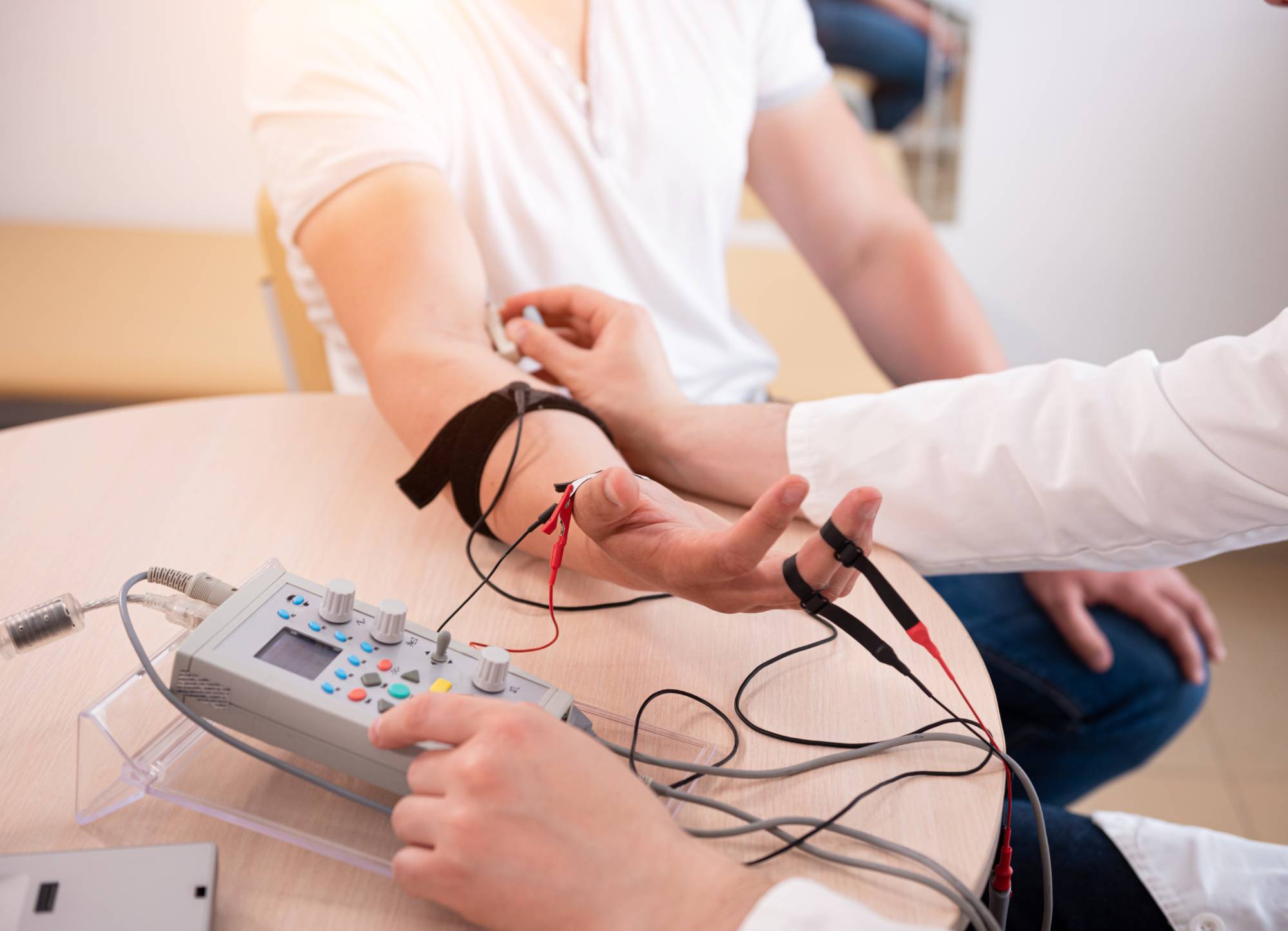
Ready to get started?
Your EMG testing includes both electromyography and nerve conduction studies – the gold standard for diagnosing nerve and muscle disorders. This comprehensive approach can identify conditions like carpal tunnel syndrome, diabetic neuropathy, sciatica, pinched nerves, and muscle diseases.
The testing uses advanced equipment that provides precise measurements of nerve function and muscle response. You’ll receive a detailed report that includes specific findings, severity levels, and recommendations for treatment.
Most major insurance plans cover EMG testing when medically necessary. We handle insurance verification and work with your provider to ensure coverage. Same-day appointments are often available for urgent cases.
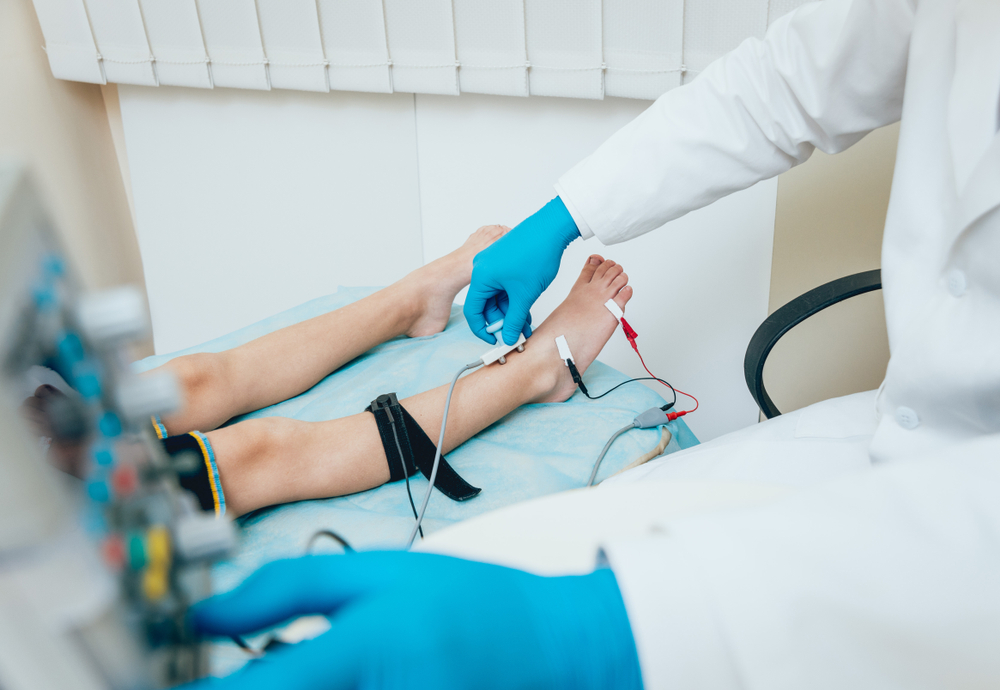
New York:
Florida:
Support